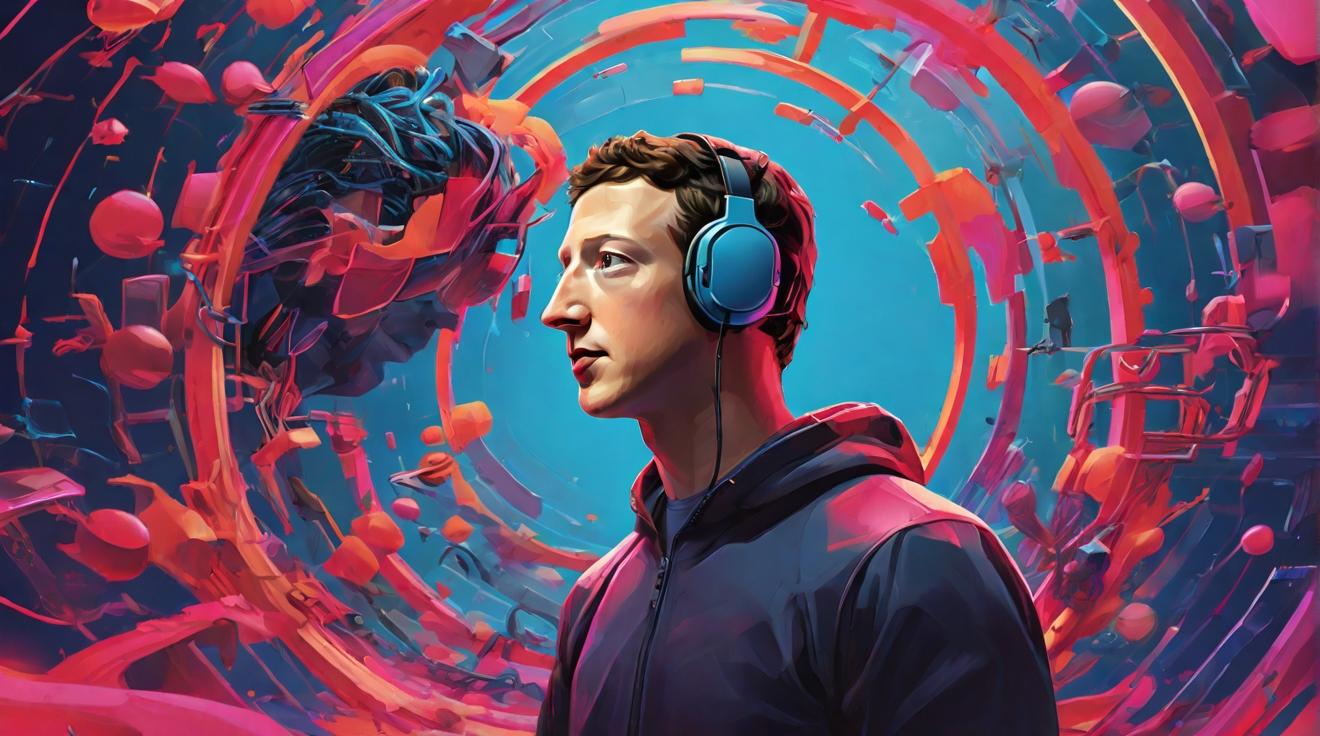Mark Zuckerberg's Bold Critique of Apple's Vision Pro Sparks Industry Debate
In a move reminiscent of Steve Ballmer's initial dismissal of the iPhone, Mark Zuckerberg has openly criticized Apple's latest offering, the Vision Pro, igniting a flurry of discussions among tech enthusiasts and industry watchers. Zuckerberg's comments, shedding light on the ongoing rivalry between open and closed models in tech, have drawn parallels with past technological showdowns, underscoring the high stakes in the ever-evolving world of virtual reality.
The Zuckerberg-Apple Saga: A New Chapter
Earlier this week, Mark Zuckerberg took to Instagram to deliver a sharp critique of the Apple Vision Pro, a device that marks Apple's ambitious foray into the virtual reality space. Quoting a price tag of $3,500, Zuckerberg compared the Vision Pro unfavorably to Meta's own Quest headset, which retails for $500. Zuckerberg pointed out several areas where he believes the Quest outperforms its Apple counterpart, particularly in terms of screen brightness and comfort.
Despite acknowledging the Vision Pro's superior eye tracking and resolution, Zuckerberg did not hold back on his critique, specifically targeting Apple's loyal fanbase and their reaction to skepticism about Apple leading a new product category. "I know that some fanboys get upset whenever anyone dares to question if Apple's going to be the leader in a new category," Zuckerberg remarked, asserting his desire for the open model of computing to prevail over closed systems like Apple's.
Echoes of the Past: The Ballmer iPhone Moment
Zuckerberg's brazen stance has drawn comparisons to Steve Ballmer's famous underestimation of the iPhone in 2007. Back then, Ballmer cited the iPhone's high cost and lack of a physical keyboard as factors that would limit its appeal, particularly among business customers. Much to Ballmer's chagrin, the iPhone went on to redefine the smartphone industry, selling millions of units and establishing Apple as a dominant force in mobile technology.
The parallel drawn between Zuckerberg's dismissal of the Vision Pro and Ballmer's iPhone comments serves as a powerful reminder of the unpredictability of technological adoption and success. Zuckerberg's critique, although bold, risks being another footnote in tech history if the Vision Pro manages to capture the imagination of consumers and define a new standard for virtual reality experiences.
The Battle of Models: Open Versus Closed
At the heart of Zuckerberg's criticism lies a broader debate between the merits of open and closed computing models. Zuckerberg's advocacy for an open model reflects a philosophical stance on the future direction of technology, emphasizing innovation, accessibility, and competition. In contrast, Apple's closed ecosystem approach prioritizes control, integration, and user experience, themes that have contributed to its success in the mobile domain.
As the debate rages on, industry observers are keenly watching to see how this clash of visions unfolds, with the future of virtual reality technology hanging in the balance. Will the open model championed by Zuckerberg win out, or will Apple's closed ecosystem approach prove to be the superior path? Only time will tell, but the discussion sparked by Zuckerberg's comments has undoubtedly added an intriguing new chapter to the ongoing saga of technological evolution.
In a rapidly changing tech landscape, the stakes are high, and the outcome remains uncertain. But one thing is clear: the competition between Meta and Apple in the virtual reality domain underscores the vibrant, dynamic nature of the tech industry, where innovation and rivalry drive progress forward in unexpected ways.
Analyst comment
Neutral news: Mark Zuckerberg’s critique of Apple’s Vision Pro sparks debate in the tech industry.
As an analyst, the market will be influenced by the ongoing debate between open and closed models in the tech industry. The outcome will impact the future direction of virtual reality technology, with both Meta and Apple competing for dominance. The market for virtual reality devices may experience increased competition and potential innovation as a result of this debate.













